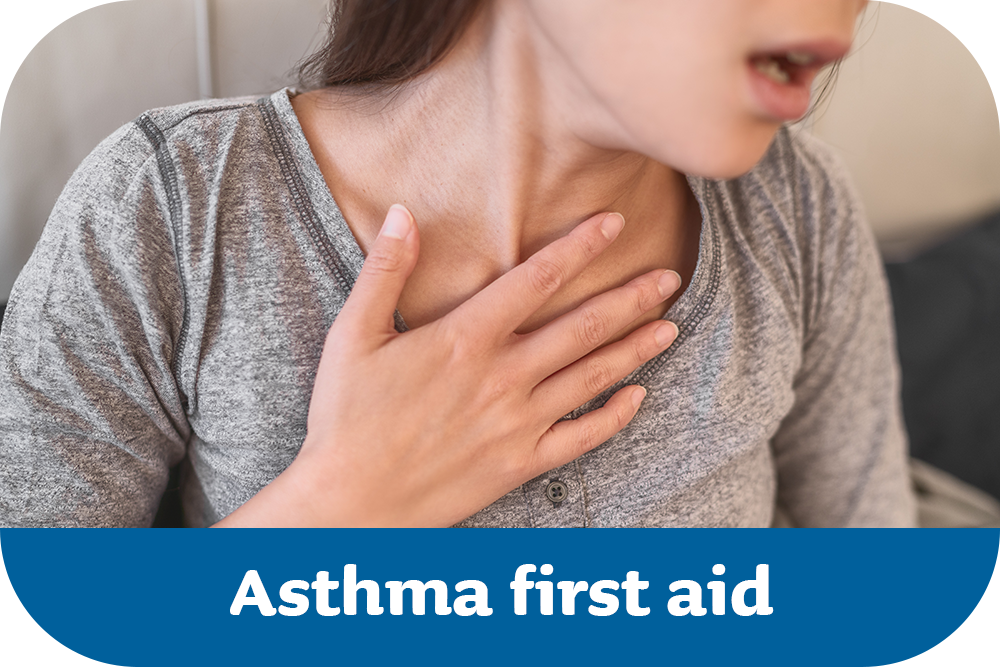
Managing your asthma means taking control of your health so that you can live a full and active life. While asthma can’t be cured, for most people it can be well controlled, which means hardly any symptoms or flare-ups, or limits to your lifestyle. With the correct knowledge, skills and medication you can do just about anything – asthma shouldn’t stop you!
Taking your medication, having an asthma management plan, knowing asthma first aid and regular check-ups with your GP are the most important steps you can take to controlling of your asthma.
You can call the Respiratory Care WA Respiratory Health Team for further information about asthma, symptoms, triggers, medication and asthma first aid. Call 1800 ASTHMA or (08) 9289 3600, or email: ask@asthmawa.org.au to book your FREE consultation.
Be healthy
Be active, eat well, maintain healthy weight and don’t smoke so that your lungs stay healthy. If you need help to quit smoking see your doctor, pharmacist or contact Quitline on 13 QUIT (13 7848).
Other conditions can affect asthma, such as hay fever (allergic rhinitis), reflux (gastro-oesophageal reflux disease), COPD, allergy and eczema. Management of these conditions may assist with your asthma control.
Consider getting your annual flu shot to help reduce your chances of catching the influenza virus each year. Speak to your GP about whether it is right for you and when the best time would be for you to get it. For more information about the flu vaccination and asthma, click here.
Monitor your symptoms
Don’t let yourself get used to poor control! Monitor your symptoms to ensure you are in good control of your asthma. That means;
- You have symptoms no more than 2 days a week;
- You need your reliever medicine no more than 2 days a week, or not at all;
- Your activities are not limited by your asthma;
- You don’t get any symptoms at night or when you wake up.
If you’re having symptoms more often, or needing to use your reliever, then your asthma could be better controlled and might be holding you back.
Know your triggers
A trigger is something that causes asthma symptoms. Everyone’s asthma is different, and everyone has different triggers. For most people with asthma, triggers are only a problem when their asthma is not well-controlled with medication.
It is important to check in with yourself and notice how you are feeling both physically and emotionally, as this may help you to identify some of the triggers of your asthma. If you notice any changes to your symptoms or triggers, we recommend that you speak to your doctor about your Asthma Action Plan.
There are lots of different triggers, and they might be something that you:
- catch (cold or flu);
- breathe in (cold air, humidity, allergens, mould, irritants, smoke);
- feel (strong emotions, reflux);
- do (exercise/physical activity);
- eat/drink/take (foods/additives, medication, alternative therapies); or
- use (latex)
Understand your medication
Asthma medications keep you well and help you to maintain good asthma control.
Relievers are fast acting medications that give quick relief of asthma symptoms. They relax the muscle around the outside of the airway to open it up. They start to work within minutes and last for up to 4 hours.
Everyone with asthma should have a reliever medicine so they can use it whenever they have asthma symptoms. But if you find you need to use your reliever more than two days per week (other than before exercise) your asthma may not be well controlled and you should see your doctor.
This type of medication is also used in asthma first aid. You should carry your reliever medication at all times in case of asthma symptoms.
Preventer medications make the airways less sensitive, reduce redness and swelling and help to dry up mucus. Preventers need to be taken every day to reduce symptoms and asthma attacks, and it may take a few weeks before they reach their full effect.
If you have a preventer take it every day, even when you feel well, to reduce your asthma symptoms.
Check your inhaler technique
Using your inhaler correctly helps your medications work better and reduce side effects. Up to 90% of Australians are thought to be using their inhaler incorrectly. There are many different types of medication inhalers, one of the most common is the puffer (metered dose inhaler). Spacers are recommended to be used with puffers as it help deliver the right dose of medicine into your lungs.
Contact Respiratory Care WA and ask a respiratory health educator to check your device technique. You can also talk to your GP or pharmacist about how to use the different devices.
Asthma Action Plans
An Asthma Action Plan is a set of instructions written with your doctor or nurse that helps you to stay in control of your asthma.
Your asthma action plan outlines:
- What medication to take.
- How to tell if your asthma is getting worse.
- What you should do if your symptoms are getting worse.
- What to do if you have an asthma attack.
As asthma changes over time your plan should be reviewed once a year.
Know Asthma First Aid
Do not wait until your asthma is severe to use your reliever. You should call an ambulance on Triple-Zero (000) and start asthma first aid if:
- you are struggling to breathe
- you can’t talk in a full sentence
- your symptoms worsen quickly
- you have blue lips
- your reliever has little effect
Read more about the signs of an Asthma Emergency here.


